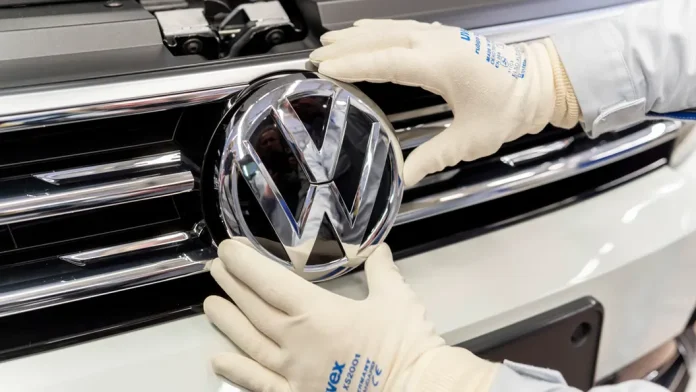Volkswagen’s decision to consider closing some of its plants in Germany as part of a €10bn cost-cutting plan sparked consternation in the country’s car industry.
The move, combined with the early termination of a 30-year employment protection agreement, is seen as a broader signal of problems in Germany’s industrial sector.
German carmakers are facing competition from electric vehicle (EV) manufacturer Tesla, as well as inflationary pressures, high energy costs, slow economic growth in Europe, and competition from Chinese car manufacturers.
The transition to EVs remains a challenge for the German automotive sector due to the introduction of various regulations and supply chain disruption. The sector is struggling with rising costs while making major investments in battery technology.
While German auto parts suppliers, such as Bosch and Continental, as well as other European carmakers resorted to firing tens of thousands of workers due to shrinking margins and demand, Volkswagen, which signed a job security agreement in 1994, has been unable to reduce its workforce.
Volkswagen Group CEO Oliver Blume planned to cut staff costs by one-fifth by 2026. However, after failing to meet his goal of saving €3 billion in two years, Blume announced plans to consider closing plants in Germany and cancelling the company’s 30-year job guarantee.
Challenges for automakers
After the plan was announced, management began negotiations with employees and their representatives. However, trade unions and the works council said that plant closures were unacceptable. German politicians also accused the European Union of creating numerous obstacles for carmakers.
The Volkswagen crisis also prompted the German government, which ended subsidies for EVs late last year, to announce potential new tax breaks for battery-powered cars. However, automotive expert Ferdinand Dudenhoffer stated:
If you look at [Czech carmaker] Skoda, they are successful. So it’s not the topic of the products and technology. It’s more or less the result of the structure of the laws in Germany. In a market which is going down, it is difficult for Volkswagen. Because it is the whole market. So the most important thing is that the German political system, Berlin made wrong decisions, which hurt the automotive industry.
Dudenhoffer suggested that European carmakers should co-operate more with China to become more competitive and stay stronger.
It would be very important to build up a strong European market for electric vehicles. (…) The idea is to make the electric vehicle market strong. If you do that, you can compete with China. If not, you will be losing.
